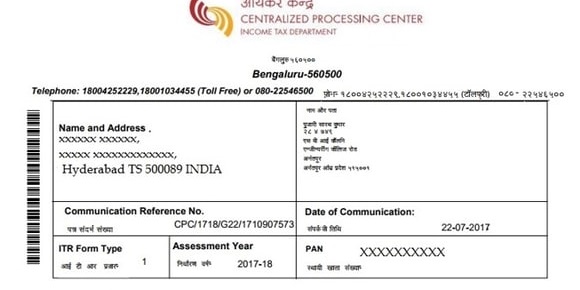Section 142(1) notices are one of the important and frequently sent notices to the assesses, it is one of the important notices sent requiring the assessee to furnish the return of income or provide such other documents required to be submitted.
The discussion of 142 notices in this article mainly considers proprietorship businesses, partnership firms, and private limited companies other forms of persons are not considered for simplicity of discussion.
Before going into why the income tax department sends 142 notices, let me explain 139(1) income tax act provisions.
Section 139(1) and section 142(1)
Section 139(1) states that the following persons are required to file the return of income
(i). Every Company and Firm
(ii). Every person other than the company and firm if total income exceeds the maximum amount not chargeable to tax.
(iii). Every other person covered under special cases – NOT COVERED IN THIS ARTICLE.
As per section 139(1), we are required to file a return of income for the FIRM and COMPANY irrespective of the operations of the business, the entity is required to file the return of income even if there is no business carried out by the firm.
Similarly, in the case of Individuals, a Return of income is required to be filed only if the Total income crosses the basic exemption limit.
When and why section 142(1)(i) notice is sent?
Section 142(1)(i) notice is sent by the assessing officer when the return of income is not filed by the assessee for the assessment year within the due date allowed under section 139(1). Even if the total income is Less than the basic exemption limit, assessee is required to file a return of income in response to the Notice under Section 142(1)(i). This notice can also be issued even after the expiry of the time limit for filing a belated return. In case notice is issued under section 142(1)(i) return of income shall be furnished in response to notice under section 142(1) and not against 139(4).
What should be done when we receive 142(1)(i) Notice?
Section 142(1)(ii) notice issued by the assessing officer requiring the assessee to furnish accounts, documents, various other information, and also a statement of assets and liabilities whether included in the accounts or not.
The officer can issue notice only for the last 4 financial years following notice under sections 143(2), 144, 148. This notice under section 142(2)(ii) cannot be issued separately, and it is always followed by the aforementioned three types of notices of assessment.
In this case, where the notice is issued, the assessee shall file the response within the time limit allowed or seek adjournment mentioning the genuine reason. In the case where there is no business for the specific period, the assessee shall submit the necessary evidence as proof of the same and validate with any other additional documents available.
How to avoid 142(1)(i) and 142(1)(ii) notice ?
Notices under this section are generally issued on the basis of the previous year’s income, information available based on the annual information system, and data submitted by various financial institutions. For example, in the case where there is interest income reported by the bank, the assessing officer has grounds to believe that assessee is having greater than the basic exemption limit.
Similarly, in case of another scenario if the assessee had declared house property income in the previous financial year and failed to file a return of income in the current financial year declaring the house property income there shall be only three genuine situations
Situation 1: Property Sold – When a property is sold, the assessee is liable to file a return of income of capital gains.
Situation 2: Property is inherited – When the property is transferred by way of Inheritance, the same shall be conveyed after filing a return of income on receiving 142(1)(i) notice.
Situation 3: Rental amount received is less than the basic exemption limit
Important 5 points on 142(i) notice
- Provide required documents within the due date allowed or seek an adjournment
- As the responses to income tax notices require good knowledge, seek the assistance of an expert in the field.
- If the return is required to be filed, provide a response after filing the return of income.
- Have a track of the process until the status is updated as closed.
- Providing a response in the legal terminology is required as per the income tax act enables quick closure of the case and helps the officer to understand the case better.



